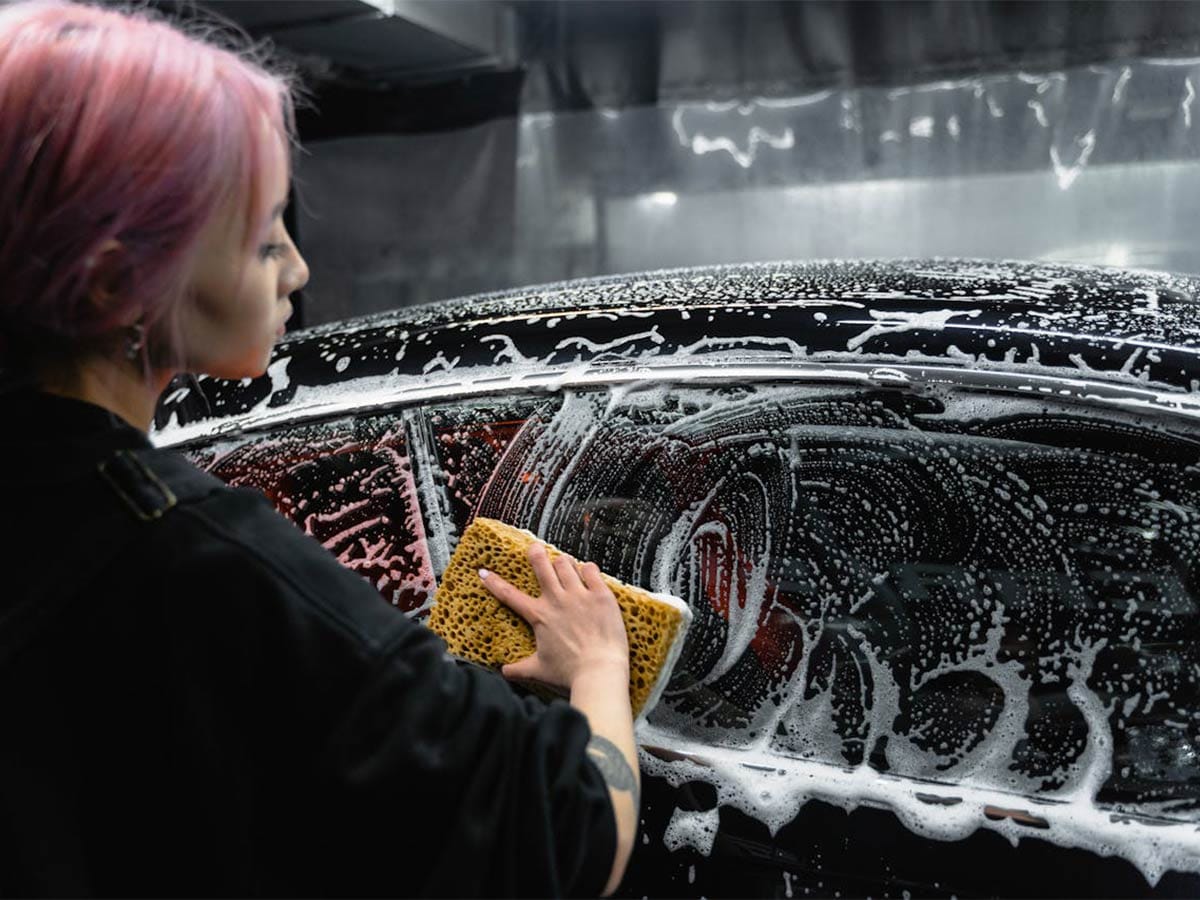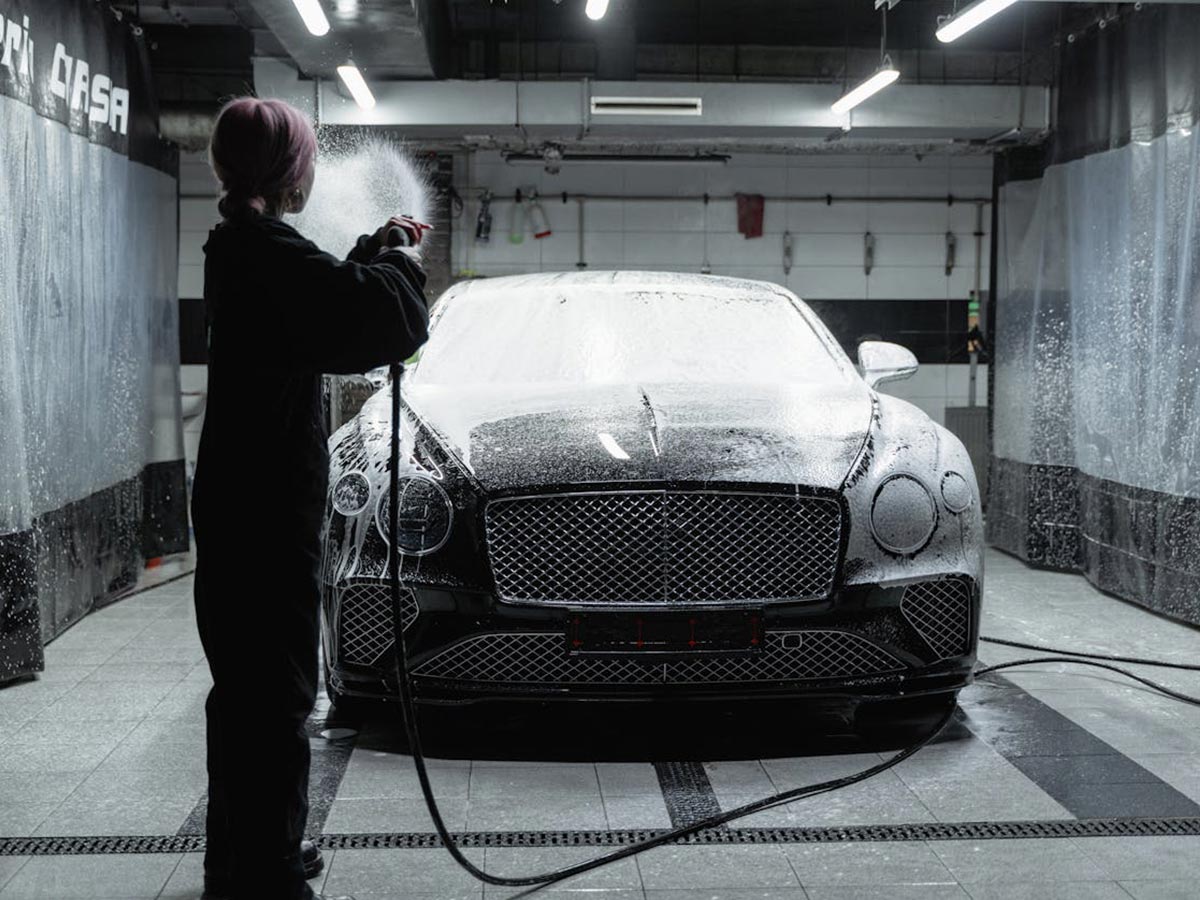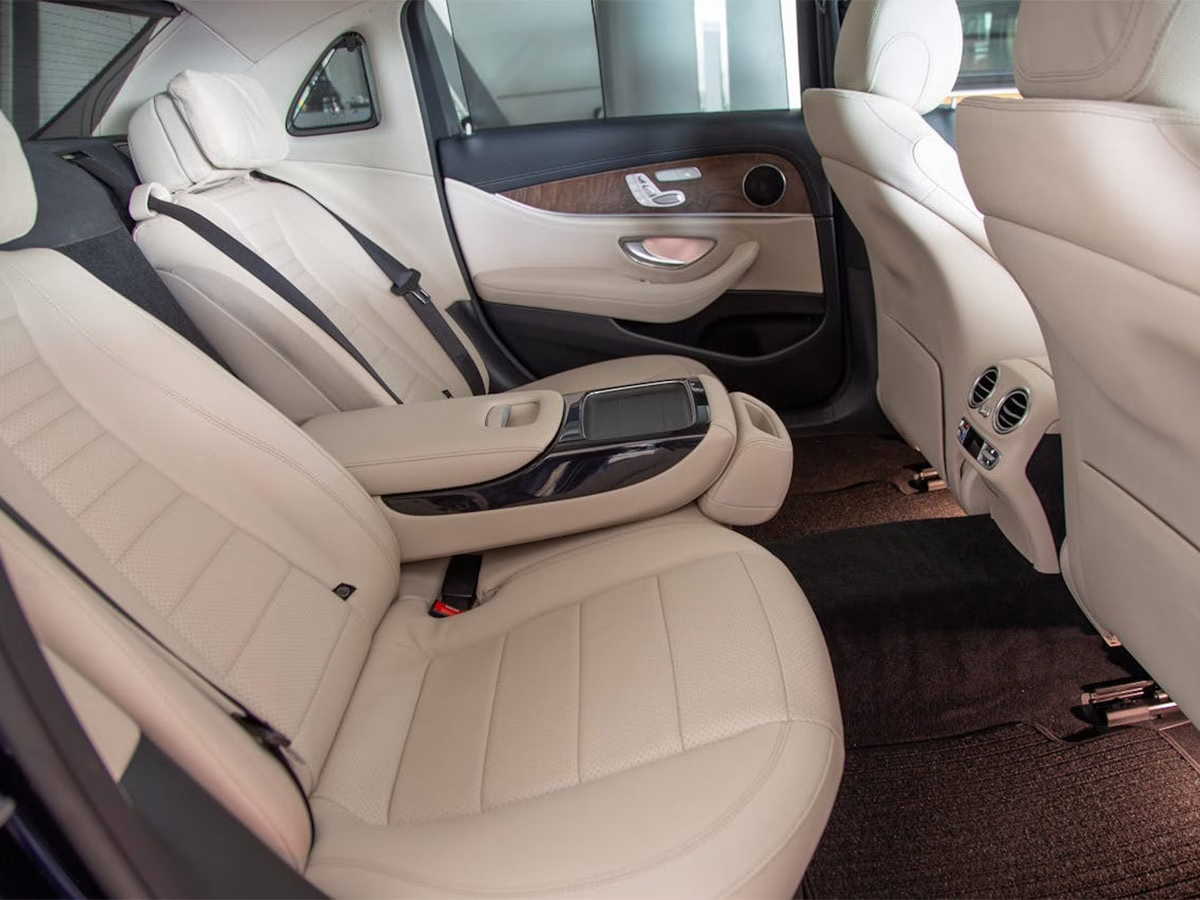Maintaining your car in a spotless condition requires you to be keen on every part, including the windows. However, can you use glass cleaner on car windows? It is a typical question that raises a lot of confusion among car owners, particularly when there are so many types of glass cleaners on the market.
In this definitive guide, we are going to deconstruct all you need to know about applying glass cleaner on car windows, whether you can use regular, household, and ammonia-based cleaners, how they react with tinted windows, which types are the safest, and pro detailing tips to achieving that perfect finish.
1. Can You Use Glass Cleaner on Car Windows?
You can use glass cleaner on car windows, but you should be careful of the type of cleaner you use. Certain glass cleaners (particularly those used in the home) can contain ammonia, alcohol, or abrasive chemicals that can harm your tint, rubber seals, or even cause streaks and residue on the glass.
This is why it is necessary to know the distinction between household and automotive glass cleaners.
1.1 Can You Use Regular Glass Cleaner on a Car Window?
In case you are asking yourself, “Can you use regular glass cleaner on car windows?” The response is: not always.
Ordinary glass cleaners (such as regular Windex) are normally designed to be used at home, and most of them contain ammonia. Ammonia cleans glass around the house, but can:
- Degrade window tint films.
- Dry out rubber seals and weather stripping.
- Leave streaks and glare on auto glass.
- It can cause damage to car paint or interior surfaces in case of over-spraying.
Technically, you can use it, but it is not recommended to do so unless the product is specifically labeled as being ammonia-free and safe for auto glass.
1.2 Can You Use Glass Cleaner on Tinted Car Windows?
This is where you must be very careful. The tinted windows may be factory-tinted (pigment in the glass) or aftermarket tint films on the inner side of the glass. The tint adhesive can be dissolved by ammonia and strong solvents, resulting in:
- Bubbling
- Peeling
- Discoloration
So, can you use glass cleaner on tinted car windows? Only when the product is:
- Ammonia-free
- Marked as safe for tinted windows.
- Ideally, designed for automotive use.
Pro Tip: Never spray your glass cleaner directly on the window; always spray it on a microfiber towel to prevent overspray on tints or interior materials.
1.3 Can You Use Household Glass Cleaner on Car Windows?
An extremely widespread error is the use of household cleaners such as Windex, 409, or store-brand glass cleaners.
Can you use household glass cleaner on car windows? You may, but then, again, only when the product is:
- Ammonia-free
- Non-abrasive
- Not filled with harsh chemicals
Nevertheless, even ammonia-free household cleaners may not clean as well as streak-free or residue-free auto glass cleaners.
1.4 Can You Use Normal Glass Cleaner on Car Windows?
“Can you use normal glass cleaner on car windows?” is another concern. Even by normal glass cleaner, you mean the chemical you have under your kitchen sink, the answer is still no unless it is automotive-safe.
Professionals in the auto detailing industry will always insist that one must use products that are specifically designed to be used in cars so that there is no problem with window tint, dash plastic, or glass glare.
1.5 Can You Use Sprayway Glass Cleaner on Car Windows?
Yes! Sprayway Glass Cleaner is among the best glass cleaners for car windows.
It is:
- Ammonia-free
- Streak-free
- Safe on tinted and untinted glass
- Popular with professional detailers
1.6 Can You Use Any Glass Cleaner on Car Windows?
No, not every glass cleaner is auto glass friendly. A lot of general-purpose cleaners are composed of chemicals that:
- Deposit a hazy residue.
- Create glare in the sunlight.
- Damage rubber, tint, or paint.
So, can you use any glass cleaner on car windows? Not, unless it is:
- Ammonia-free
- Non-toxic
- Safe on tinted glass
- Labeled for automotive use.
1.7 Can You Use Glass Cleaner on Outside Car Windows?
Yes, and your windows, especially the exterior, usually require more thorough and stronger cleaning than the inside:
- Dirt
- Road grime
- Bird droppings
- Tree sap
- Bug splatter
Nevertheless, when cleaning the car window from the outside, do not spray cleaner around:
- Painted surfaces
- Ceramic coatings
- Plastic trims
Caution: Can you use glass cleaner on car paint? No, avoid overspray and be careful. Numerous glass cleaners are capable of dulling or even destroying your paint, wax, or sealant layers.
1.8 Can I Use Glass Cleaner on My Car?
Yes, provided it is intended for automotive use. This applies to glass, mirrors, and even touch screens in certain automobiles.
Just remember:
- Make sure it doesn’t come in contact with the car paint.
- Avoid household glass cleaners unless they are ammonia-free.
- Avoid scratching by using microfiber towels.
Provided you have wondered, “Can I use window cleaner on my car?” the safest solution is to use specifically designed auto glass cleaners such as:
- Sprayway
- Invisible Glass
- Stoner Automotive Glass Cleaner
2. Can You Use Carpet Cleaner on Car Seats?
Yes, but not all carpet cleaners can be equal. Only use the specialized cleaner products tailor-made for automotive upholstery or interior cleaning. Use products that are not very foamy or very heavily scented, as these can leave a residue or cause allergies.
3. How to Clean a Car With a Steam Cleaner
A steam cleaner is an environmentally friendly method of cleaning car exterior and interior surfaces without cleaning agents. Steam cleaning is possible:
- Interior glass
- Dashboard
- Vents
- Leather
- Carpets
It works particularly well at:
- Disinfecting
- Loosening grime
- Lifting stains
3.1 How to Clean a Car With a Steam Cleaner?
- Use a microfiber cloth.
- Stay away from electronics.
- Don’t overheat tinted glass.
4. Is Dry Ice Cleaning Good for Cars?
Yes, dry ice cleaning is a professional-level process for cleaning:
- Engine bays
- Undercarriages
- Wheel wells
- Interior restoration
It is non-abrasive, chemical-free, and leaves no moisture, and is therefore ideal for classic car detailing or showroom restorations.
In case you are worried about traditional cleaning destroying your vehicle, dry ice cleaning is worth trying.
5. Final Verdict: Can You Use Glass Cleaner on Your Car Windows?
Here’s the bottom line:
| Question | Answer |
|---|---|
| Can you use glass cleaner on car windows? | ✅ Yes, if ammonia-free |
| Can you use regular glass cleaner on car windows? | ⚠ Only if it’s ammonia-free |
| Can you use household glass cleaner on car windows? | ⚠ Not recommended |
| Can you use glass cleaner on tinted car windows? | ✅ Only tint-safe products |
| Can you use Sprayway glass cleaner on car windows? | ✅ Absolutely |
| Can you use glass cleaner on the outside car windows? | ✅ Yes |
| Can you use glass cleaner on car paint? | ❌ No |
6. Expert Tips for Streak-Free Windows
- Take two clean microfiber towels, one for cleaning and one for drying.
- Clean in the shade so as not to leave evaporation streaks.
- Use vertical strokes inside, horizontal strokes outside (to spot interior vs exterior streaks)
- No overspray on dashboard or seats
7. Conclusion
When getting your vehicle ready to go on a road trip, detailing your car before you sell it, or simply prefer to drive a cleaner car, it is important to know what type of glass cleaner you should use. Some products are not safe on auto glass, particularly when tinting, painting, or interior surfaces are considered.
It is best to use automotive-specific glass cleaners when unsure, and no ammonia-based household products should be used on car windows unless specifically marked as safe to do so.
And is it possible to clean a car window with glass cleaner? The response is always the same: Yes, but ensure that the product is safe for auto glass and preferably tint-safe. The improper product, even on a single window, can destroy tint film, rubber seals, or cause streaks that obstruct visibility.



